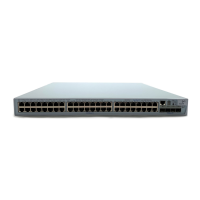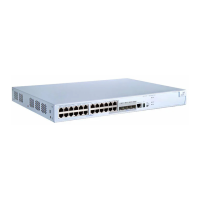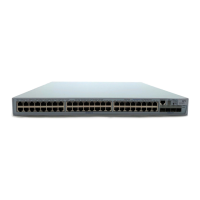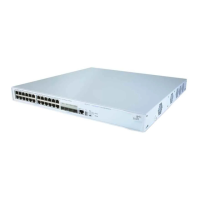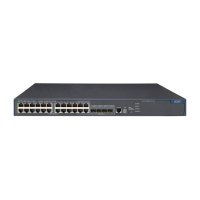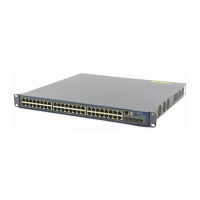3-6
z If you make some RIP configurations in interface view before enabling RIP, those configurations
will take effect after RIP is enabled.
z RIP runs only on the interfaces residing on the specified networks. Therefore, you need to specify
the network after enabling RIP to validate RIP on a specific interface.
z You can enable RIP on all interfaces using the command network 0.0.0.0.
Configuring the interface behavior
Follow these steps to configure the interface behavior:
To do… Use the command… Remarks
Enter system view system-view ––
Enter RIP view rip [ process-id ] ––
Disable an or all interfaces
from sending routing
updates (the interfaces can
still receive updates)
silent-interface { interface-type
interface-number | all }
Optional
All interfaces can send
routing updates by default.
Return to system view quit —
Enter interface view
interface interface-type
interface-number
—
Enable the interface to
receive RIP messages
rip input
Optional
Enabled by default
Enable the interface to send
RIP messages
rip output
Optional
Enabled by default
Configuring a RIP version
You can configure a RIP version in RIP or interface view.
z If neither global nor interface RIP version is configured, the interface sends RIPv1 broadcasts and
can receive RIPv1 broadcast and unicast packets, and RIPv2 broadcast, multicast, and unicast
packets.
z If an interface has no RIP version configured, it uses the global RIP version; otherwise it uses the
RIP version configured on it.
z With RIPv1 configured, an interface sends RIPv1 broadcasts, and can receive RIPv1 broadcasts
and RIPv1 unicasts.
z With RIPv2 configured, a multicast interface sends RIPv2 multicasts and can receive RIPv2
unicasts, broadcasts and multicasts.
z With RIPv2 configured, a broadcast interface sends RIPv2 broadcasts and can receive RIPv1
unicasts, and broadcasts, and RIPv2 broadcasts, multicasts and unicasts.
